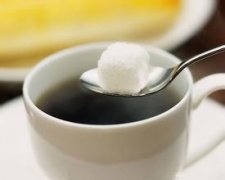Coffee is exciting, but don't drink too much.

"what's your cell phone number?" "I am 138 × × 0370." This kind of short-term memory that occurs every day is called "working memory" in neuroscience, just like the "flash memory" of the brain. The latest authoritative international journal Science has published new discoveries by Shanghai scientists on the mechanism of working memory, according to the Neurology Institute of the Shanghai Academy of Health Sciences. This result suggests that the "flash memory" of the brain is consistent with the law of learning, and encouragement is often counterproductive.
In daily life, the behavior of remembering mobile phone numbers varies from person to person. some people can write down 8 or even 11 digits at a time; others can remember it for a few seconds, but forget it the next second. Li Chengyu, head of the research team, said, "in fact, it is difficult to find a task that does not require the participation of working memory, which has become one of the core components of intelligent cognition." For example, when doing mental arithmetic, 17 × 24? The brain needs to operate on individual digits, ten digits and other different digits in a "delay period", and the intermediate results are briefly stored in the "flash memory" until the operation is finally completed.
Li Chengyu's research group trained the mice to learn a task, which was divided into 5 groups and practiced 100 times a day. Mice smell two identical or different smells in seconds, and they remember and compare-if the smell is different, thirsty mice can lick some water as a reward; if the smell is the same, there is no water supply. the mice will not lick the water "in vain". The brain-related activities of these mice were monitored at the cellular level. As Science reviewers said, Li Chengyu et al "used the experimental means of 'photogenetics' and 'electrophysiology'. It is reported that the electrical activity of the medial prefrontal lobe is involved in the learning process of working memory tasks. This work uses cutting-edge experimental techniques, and the results are fascinating and probably correct.
Interestingly, the team tried to use three independent experiments to increase the excitability of neurons in this brain region, but the results just reduced the correct rate of learning in mice. They explain that there are exuberant and inhibitory neurons in the brain, which are closely related. If the stimulation for the purpose of excitement reaches a high level, it may activate inhibitory neurons and weaken the activity of working memory. In other words, "drinking coffee can excite your memory, but don't drink too much." The reviewer of the journal Science also said, "the authors reported that operating the electrical activity of the medial prefrontal lobe nerve in mice could reduce the behavioral accuracy of learning, working and memory tasks, but this operation became ineffective after the mice learned the task." Interestingly, they not only found a gradual decline in the intensity of electrical activity during the learning 'delay', but also clarified the correlation between neuron electrical activity and good or bad behavior. "
Li Chengyu suggested that working memory and computer "flash memory" have the same capacity limitations, depending on individual ability. If you overremember at the same time, the excess may be useless and ineffective, so it is best to have a personalized customized package for learning memory. He said that as a basic research, a large number of follow-up continuous studies are needed to make progress in improving human working memory and disease treatment.
Important Notice :
前街咖啡 FrontStreet Coffee has moved to new addredd:
FrontStreet Coffee Address: 315,Donghua East Road,GuangZhou
Tel:020 38364473
- Prev

Will drinking coffee every day affect people's health?
The pace of life of modern people is getting faster and faster, drinking coffee has become a habit of daily life, some people will feel lethargic if they don't drink it for a day, but will drinking coffee every day affect people's health? Studies have found that moderate consumption of coffee is beneficial, it can reduce Alzheimer's disease, Parkinson's disease, heart
- Next

Drinking coffee may reduce the risk of Alzheimer's disease
According to the Daily Mail of November 27, drinking three to five cups of coffee a day can help reduce the risk of Alzheimer's disease. But some experts say there is no concrete evidence to support this conclusion. Many people start their day with an espresso, and recent studies have shown that drinking coffee can also prevent Alzheimer's. Some scientists say that three times a day
Related
- Beginners will see the "Coffee pull flower" guide!
- What is the difference between ice blog purified milk and ordinary milk coffee?
- Why is the Philippines the largest producer of crops in Liberia?
- For coffee extraction, should the fine powder be retained?
- How does extracted espresso fill pressed powder? How much strength does it take to press the powder?
- How to make jasmine cold extract coffee? Is the jasmine + latte good?
- Will this little toy really make the coffee taste better? How does Lily Drip affect coffee extraction?
- Will the action of slapping the filter cup also affect coffee extraction?
- What's the difference between powder-to-water ratio and powder-to-liquid ratio?
- What is the Ethiopian local species? What does it have to do with Heirloom native species?

